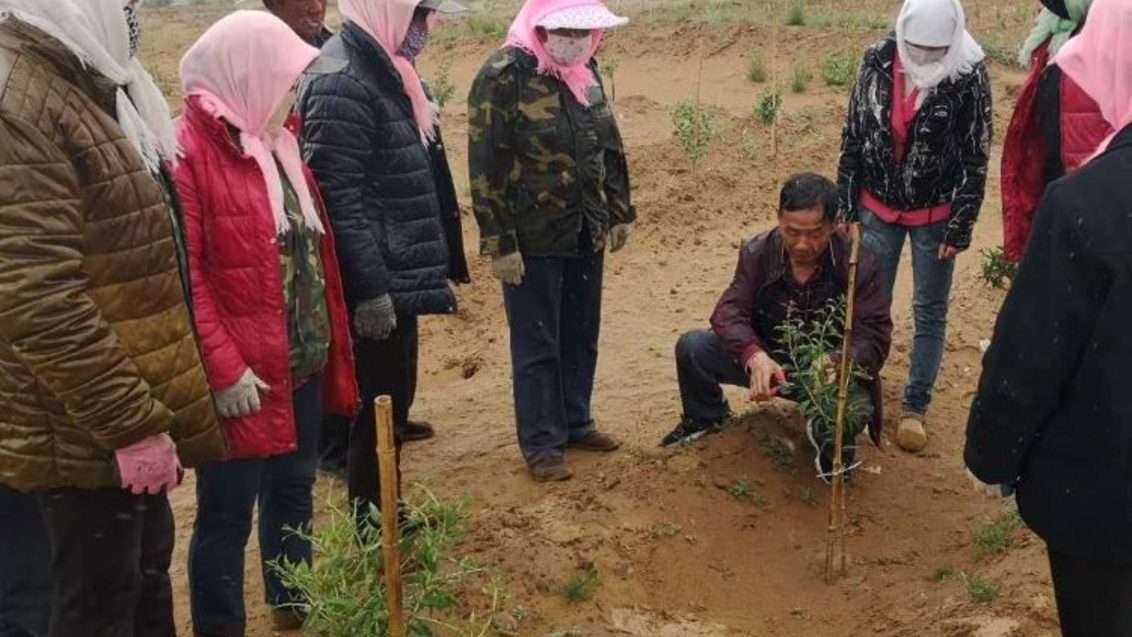‘Berry’ good prospects for poorer smallholders

Changing crops can be an excellent way to raise smallholder incomes. It is, however, rarely easy. A current example from China illustrates the complexity – and looks good so far.
Contrary to what many people outside China think, the country is far from universally prosperous. Many farmers, for example, still struggle on low incomes. They include numerous smallholders in Gansu Province’s Gulang County. To help raise their earnings, our Foundation began working there in 2018, with the encouragement of ChemChina. “We’ve enabled a big step forward by investing in Qianhong Cooperative’s demonstration goji-berry farm”, declares our Gansu Program Manager Honglei Li. The demo plots extend over 200 mu, more than 13 hectares. “The smallholders can receive dividends from the cooperative, and also earn income by working on the farm”, Honglei explains.
Popular at home and increasingly abroad, goji is used both in cuisine and medicine. Potentially, therefore, it is a lucrative crop. Gulang County growers, however, face a number of challenges. “The climate here is arid”, says Honglei. “With scarce rainfall and high evapotranspiration, water resources are very limited. So we helped the cooperative introduce innovative drip irrigation from abroad. This system uses less water than the old flood irrigation. It also allows for ‘fertigation’: farmers can very efficiently apply fertilizer with the water.”
As with any region trying out a new cash crop, Gulang County also has some catching-up to do. “The local planting technology is still immature and the cooperative lacks technical personnel with relevant expertise”, comments our Country Director Tony Tong. “To help them, we invited a goji planting expert from Ningxia to provide technical guidance. He took the locals through pruning, pest control, water and fertilizer management, variety management, soil improvement and other important topics.” The aim is for the cooperative to establish its own technical team.
A further challenge, ironically, is goji’s increasing popularity. “The planting area in China has considerably extended in recent years”, says Tony. “With a surge in production, berry prices have tumbled.” The Syngenta Foundation had to find a way for Gansu growers to tap into a higher-value market segment. “We realized that obtaining ‘Green Food’ certification for the local crop would lift sales and attract a premium price”, reports Honglei Li. “Getting that certification meant a lot of hard work, and good coordination with the growers and certifiers, but it has all worked out well.” Qianhong Cooperative successfully obtained Green Food certification this August.
Growing improvements and certificates are just part of the story, however. Earning as much as possible from this ‘new’ fruit also requires doing the processing locally. The cooperative established a goji processing plant in 2019. To help get maximum benefit from the facility, our Foundation team again brought in an outside expert. He worked with Qianhong staff both to ensure maximum quality and develop new goji products. “Our team has also provided support on packaging design and a combination of online and offline sales”, adds Honglei. “We’ve even helped organize live broadcast endorsements from celebrities!” The cooperative has now established its own sales team, and business is taking off successfully despite the additional challenges of restrictions during the Covid-19 pandemic.
